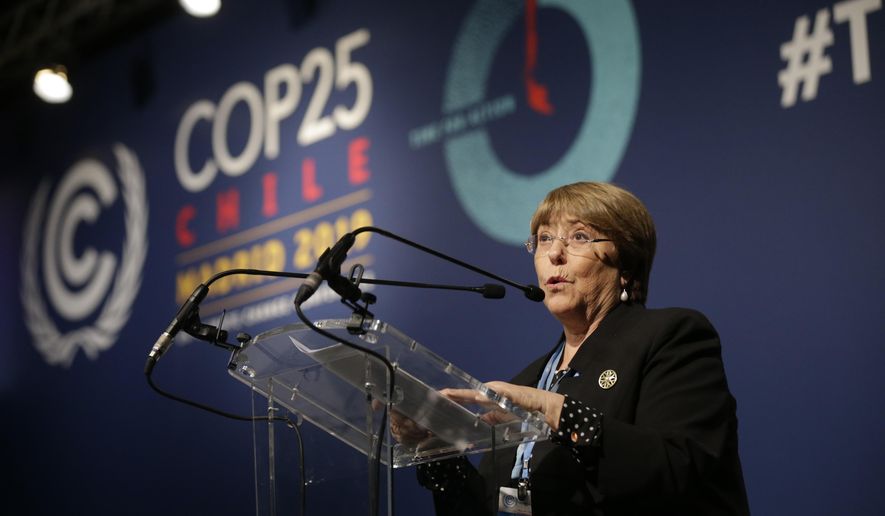COLOMBO, Sri Lanka (AP) - The United Nations’ human rights chief expressed regret Thursday over the Sri Lankan government’s decision to withdraw its co-sponsorship of a 2015 resolution backing an investigation into alleged human rights violations during the country’s civil war.
Michelle Bachelet told the U.N. Human Rights Council in Geneva that the decision risks setting back efforts for postwar reconciliation.
“The fundamental problem remains that Sri Lanka has still not addressed impunity for past violations, nor undertaken the security sector reforms needed to address their drivers and enablers,” Bachelet said.
She said systemic problems with the criminal justice system remain an impediment to real justice.
Sri Lanka co-sponsored a resolution in 2015 along with 11 other countries, including the United States, Britain, Australia and Germany, calling for an investigation into the alleged rights violations by both government forces and the now-defeated ethnic Tamil rebels in the island’s civil war, which ended in 2009.
The resolution also called for providing answers on the fate of thousands who reportedly went missing in the war and obtaining the support of international prosecutors and judges in trials against alleged perpetrators.
The council has since given Sri Lanka two two-year extensions to implement the resolution.
Sri Lankan Foreign Minister Dinesh Gunawardena on Wednesday announced the country’s formal withdrawal from the resolution.
“Constitutionally, the resolution seeks to cast upon Sri Lanka obligations that cannot be carried out within its constitutional framework and it infringes the sovereignty of the people of Sri Lanka and violates the basic structure of the constitution,” Gunawardena said.
He said Sri Lanka would address accountability issues on its own and plans to appoint a new commission to review the reports of past commissions and assess their recommendations.
Bachelet said Sri Lanka’s domestic processes have consistently failed in the past.
“I am not convinced the appointment of yet another commission of inquiry will advance this agenda. As a result, victims remain denied justice and Sri Lankans from all communities have no guarantee that past patterns of human rights violations will not recur,” she said.
Conservative United Nations estimates said some 100,000 people were killed in the civil war, but a later report prepared by U.N. experts said as many as 40,000 Tamil civilians may have been killed in just the final months of fighting.
Current Prime Minister Mahinda Rajapaksa, who was then Sri Lanka’s president, oversaw the military campaign that crushed the Tamil Tiger rebels. The government of Rajapaksa’s successor, Maithripala Sirisena, co-sponsored the resolution in 2015, but current President Gotabaya Rajapaksa, the younger brother of Mahinda Rajapaksa, promised to withdraw from the resolution ahead of last November’s presidential election.




Please read our comment policy before commenting.